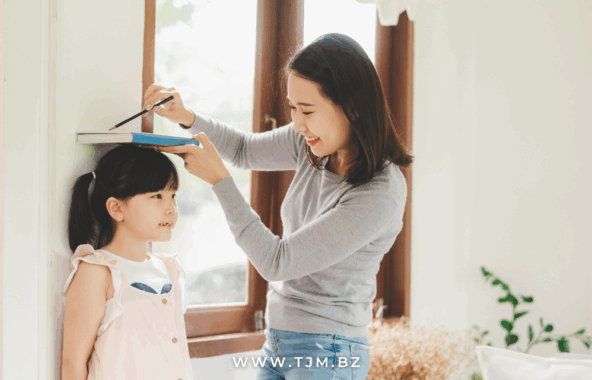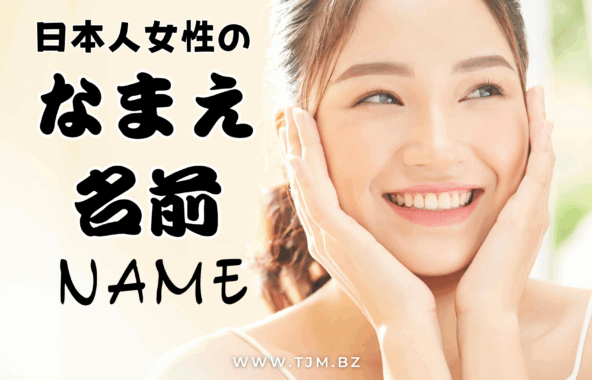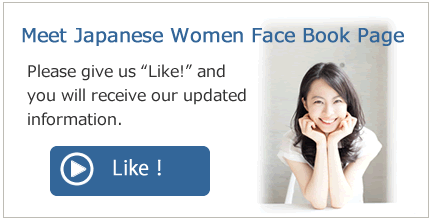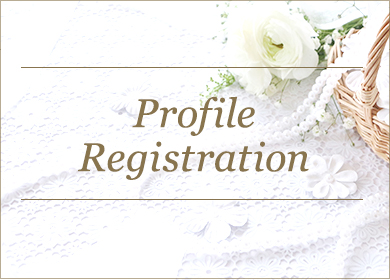- Blog
- American Boys | Dating & The City Episode 7
Dating and The City

American Boys | Dating & The City Episode 7
Tomo (Living in NYC)I am a single Japanese woman living in NYC. After ending the long-distance relationship with my former Japanese boyfriend, I went back to the dating scene for the first time in almost 10 years. Then I decided to try something that I had never done before– online dating with non-Japanese men. It was a completely different experience for me to date men from different racial and cultural backgrounds. They are typically good at complimenting ladies, carrying good conversations, keeping ladies entertained overall, and making them laugh by being funny. At the same time, it can be tough. What I say and do or what he says or does could be confusing, misleading, or even become a deal breaker. In my column, I will share my cross-cultural dating experiences from a Japanese woman’s perspective, hoping that they should be helpful as tips for those who’re seeking cross-cultural relationships (with a Japanese woman in particular).
Dating & City Episode
| 1 | 2 | 3 | 4 | 5 | 6 | 7 | 8 | 9 | 10 | 11 | 12 |
Dating & The City Episode 7
American Boys
Readers of this blog are non-Japanese men, mostly from the western countries looking for a serious relationship or marriage with Japanese women. Right? I am curious what made you interested specifically in Japanese women. Maybe some of the readers can tell me the personal reasons. On the other hand, I believe the readers would like to learn how you guys are seen or perceived by Japanese women.
In this column, I will talk about why Japanese women choose American men over Japanese men. I understand some readers are from outside of the United States, but since I am in New York, I will specifically discuss American men this time. But I am sure some of their characteristics are shared by other western countries as well due to the historic connections of America and the rest of the world. So, hope this is relevant and helpful to such readers as well.
So, What’s So Appealing?
I asked around a few friends of mine who all had experiences of relationships with American men now or in the past to hear their thoughts. I am also inserting some of the Japanese words that would help deepen your understanding of the Japanese culture. You might want to google these words later to better grasp their meaning.
· Confidence
This friend of mine is “the Queen” of dating. One Saturday afternoon we sat down at my favorite local Vietnamese restaurant for lunch. I was eager to hear her take on American men based on her rich dating experiences. She showed up dressed in a tube top with jeans. She is very attractive, with long black hair and long eyelashes. The Queen is so magnetic that the guy working there was extra nice and engaged. Honestly, I had never seen him like that before. She had gotten married to an American man twice before. She said what she liked about American guys was their confidence. “When you carry yourself with confidence, it shows and that’ll make you more attractive and desirable in women’s eyes,” she explained, as she combed through her long hair with beautifully manicured fingernails.
· Good at Complimenting
The Queen also said American men would compliment women often. She’s currently seeing a guy and every time they meet up, the first thing he says is ‘’You look so pretty today!” Who wouldn’t feel good when your boyfriend or husband notices a subtle change you made in your appearance and praises your new hairstyle or what you’re wearing? It might sound a bit cheesy, but women take such comments as a sign that her man is paying enough attention to her, and women of course would love to know that.
· Straightforward
The Queen also said “American men are simple and straightforward. You don’t really have to read between the lines.” She said it is easy for her to understand American guys. “I don’t have to guess what they really mean by saying certain things….On the other hand, he would always say to me ‘I have no idea what’s on your mind’,” she laughed. The reason he said this was because she told him he didn’t have to make himself available for her during weekends. “We’re still in the early stage of dating and I thought he might also want to date somebody else. I didn’t want him to feel that I was too serious and burdensome. Maybe I’d like to be seen as a cool and mature woman. But he told me that if I like him, he’d rather hear me saying ‘I’d like to see you NOW!’,” she laughed.
· Parents Are Out of the Picture
Although this is not a characteristic of American men themselves, the importance of the relationship with in-laws after marriage is very different compared with that of the Japanese. The Queen had no experience of marrying a Japanese man, but she pointed out “Getting married to a Japanese man means getting married to his parents or ‘ie’ (家, meaning family or clan) as well. You cannot ignore his parents, and they would have much to say about their son’s wife and his household matters. But I don’t think that’s necessarily the case with an American family.” She said her relationship with her former husbands’ parents was more casual and light. “It’s so much easier to handle,” said the Queen, sipping a strong Vietnamese coffee to end our lunch.
· Sense of Humor
I reached out to another friend of mine who’s been happily married to her American husband (they met in Japan) for over 20 years and asked her what she loved about him. She and her husband are such a cool couple–she’s very beautiful like a model and her husband is also quite handsome and a successful entrepreneur. He’s still very much smitten with her and doesn’t hesitate to show public displays of affection. They have three kids and they live in a big house in an upscale neighborhood in the suburbs. “My husband would always make me laugh by saying something funny or doing something silly,” she said. “He’s still acting like a boy sometimes,” she said, but her tone was understanding and affectionate.
· Surprises
She also liked that her husband would give her surprises sometimes. Before they were married, they went to the Tokyo Disneyland. “I was looking at a cute mascot in the gift shop. Then, he secretly bought it and gave it to me later!” she said, remembering the times when they were younger and still dating. He would also secretly contact her friends to organize a surprise party for her birthday.
· Romantic
She also shared her precious memory from 25 years ago. One day, close to midnight, she heard something hitting on her window glass. She opened the window to find him looking up at her on the second floor of her parents’ house. He was standing there holding a lot of one-yen coins in his hand, throwing them at her window to get her attention. “I was surprised. I lowered my voice and asked him, ‘What in the world are you doing here now?’ and he replied, ‘I just wanted to see your face’.” Once he saw her, he was happy and satisfied. Then he left. Is this a modern version of Romeo and Juliet or what? She completely fell in love with him (who wouldn’t?) and left another handsome, successful, and rich Japanese suitor to marry him. What a story!!
· Respectful
Yet another friend who’s been also happily married said (they actually met through ‘omiai (お見合い,’ meaning matchmaking) service like TJM), what she liked about her husband was his being frank and straightforward. She said her father was a very traditional Japanese man, and he was a man of authority. “Coming from such a traditional patriarchal family background, I was very surprised when I first saw my husband and his father’s relationship. They openly talked about everything. They’re equal and best friends as well, and they respect one another. My husband also treats our son as his father did to him, and I think it’s so wonderful.” She also said she could discuss anything with her husband. “I feel that I am respected as an individual and I respect him as well.”
· Flexible and Easygoing
Two other friends of mine, both of whom used to be married to American men in the past (we call people like them ‘batsu ichi(バツいち. ‘Batsu’ means no-good or flawed. ‘Ichi’ means once. The word is used to refer to a person who failed in marriage once), agreed that American men would help women with household chores and also tend to accept the idea of outsourcing such tasks as cooking and cleaning by hiring service providers. “Meanwhile, Japanese men would not like this idea because they typically think that household chores should be taken care of by the wife. “They cannot get over the idea that women are supposed to be responsible for household matters,” one of the girlfriends said.
Any Complaints?
Are you flattered and happy to hear all this good stuff about American men? Now, what reservations or even complaints do Japanese women have about their American boyfriends or husbands? What’s the challenge? What’s the common source of conflicts or arguments in a Japan-U.S. cross-cultural relationship?
· Food Issue
Food has a very important function in deepening relationships and strengthening the couple’s bond. It matters especially because it is part of our daily lives. A few friends all agreed that the food was such a critical element in a relationship. The Queen said, “I don’t mind toast, scrambled eggs, and bacon for breakfast. But I wouldn’t want to eat them all the time.” Another friend echoed her by saying, “Even if I love my boyfriend or husband, if he wouldn’t eat Japanese food at all, it would be very hard because I would like to share the joy of eating the same food with my significant other.”
· Money Issue
The modern Juliet said one source of conflict between she and her husband was money. “For him, money is there to spend, and he spends a lot of money for something I think is a total waste,” she confessed with some frustration. For example, she disclosed that her husband had spent over three thousand dollars (!) for fireworks on July 4th. “I got so upset. I’d rather save the money. Naturally, our disagreement over money leads to arguments sometimes,” she sighed.
· Arrogant (too confident)
Although the Queen said she liked American men being confident, she also said having too much confidence could be problematic sometimes. “If you are too confident about yourself, you won’t pause and reflect upon your behavior. That could lead to arrogance,” she said. That reminded me of how much Americans would stretch their experiences and skills on their resume. Meanwhile, the Japanese tend to be too humble, underrate their talent and skills and present themselves as mediocre. From this episode alone, you can easily see how far apart we are culturally.
· Just saying it (part of routine)
The Queen said she feels flattered and pleased when her date says something nice about her. But at the same time, if he keeps saying the same thing as a routine, it gets old and would give her the impression that he’s just saying it and doesn’t really mean it. There’s a saying in Japanese: ‘sugitaru wa oyobazaru ga gotoshi (‘過ぎたるは及ばざるが如し,’meaning the last drop makes the cup run over).’ It suggests you should just shut your mouth rather than saying something insincere.
The Queen made another interesting observation. “Japanese men are shy and don’t compliment their wife or girlfriend much. But when they do, it would be very special because it is so rare. When my former Japanese boyfriend told me ‘kirei dane (‘綺麗だね,’ meaning ‘you’re beautiful’),’ because he rarely said such a sweet complement, my heart actually skipped a beat at his words,” said the Queen with some excitement. As you can see, sometimes it is true that less is more.
Cross-Cultural Relationship Takes More Effort
So, what do you think about these observations? Do you agree or disagree? Are they fair? Well, regardless of the observations being fair or not, those are their honest opinions. What is obvious is that we’re culturally very different. Our food culture is very different, the way we present ourselves is different (almost opposite I would say), the way we communicate is very different, too. It is not a matter of which one is better, or which is right and the other is wrong. The important thing is to acknowledge and respect the differences.
The modern Juliet frankly admitted that to this day, even after over 20 years of marriage, she might need to explain something she said, or why she said it, because her husband doesn’t get it (by the way, he speaks fluent Japanese and understands the Japanese culture very well). “It is so tiring sometimes,” she said. It makes her wonder what it might have been like to be married to the Japanese suitor she abandoned for her American husband.
“It would be much easier to understand somebody with the same cultural background,” she said. She admitted that she’d rather get married to a Japanese man if she were to marry again. “Had I been married to a Japanese man, I wouldn’t have had to deal with these challenges such as explaining many things, because we have similar thought processes. I miss the ‘aun no kokyu’ (‘阿吽の呼吸,’ meaning a shared attunement without words).”
Frankly, I was surprised to hear that. These are words coming from somebody who has a successful marriage. This got me thinking about the challenges of cross-cultural relationships. On top of that, there’s a language barrier, too. It is nice to paint a rosy picture about cross cultural relationships, but the reality is not that simple, unfortunately. Building a successful relationship is hard in the first place. It takes patience and effort. In a cross-cultural relationship, it is even more so. American men being romantic, good at complimenting, humorous, frank and flexible, are all wonderful characteristics and qualities. But many of them are like “add-ons” or icing on the cake. At the end of the day, what fundamentally matters in the long run is connection and compatibility, willingness to understand and listen, and respect.
So, what did you think about what these Japanese women had to say about American men? What’s so appealing about Japanese women? Do you think you can make a relationship work with somebody with a different cultural background? Are you ready to put the effort into making it successful? Are you willing to be patient? Are you genuinely interested in your partner’s culture, and can you respect it? I think you (both American men and Japanese women) should really ask yourselves these questions because they are extremely important in building a successful and meaningful relationship.
(Written by Tomo)
I am looking forward to her Dating & The City – Episode 8!
Naoko Matsumoto
Founder & CEO of Traditional Japanese Matchmaker
Traditional Japanese Matchmaker is the best dating and matchmaking service in Japan that is specialized for single professionals and Japanese women established in 1999. Please click the link below to sign up for TJM’s Free Registration if you are truly interested. We look forward to assisting you in finding your Japanese wife.
and more...
-

Blog
What Is IBJ? Japan’s Top Marriage Network Explained -

Blog
Could you introduce me to a tall Japanese woman? -

Blog
Top 50 Japanese Girlfriend Names and Their Beautiful Meanings for Your Future Wife -

Blog
Are Japanese Women Willing to Relocate Overseas for Love? -

Blog
What Do Japanese Women Look for in a Husband? -

Blog
Why Do Japanese Women Consider a Man’s Income Before Marriage?

 日本語
日本語




